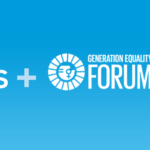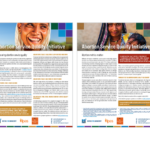
Representatives of seven youth groups from across the Democratic Republic of the Congo (DRC) are joining forces to advocate for sexual and reproductive health and rights, including safe abortion care in accordance with the Maputo Protocol.


These two fact sheets—Measuring Abortion Service Quality and Abortion Metrics Matter— describe the Abortion Service Quality Initiative’s work to develop a set of common, reliable and evidenced-based metrics to evaluate the quality of abortion care.


